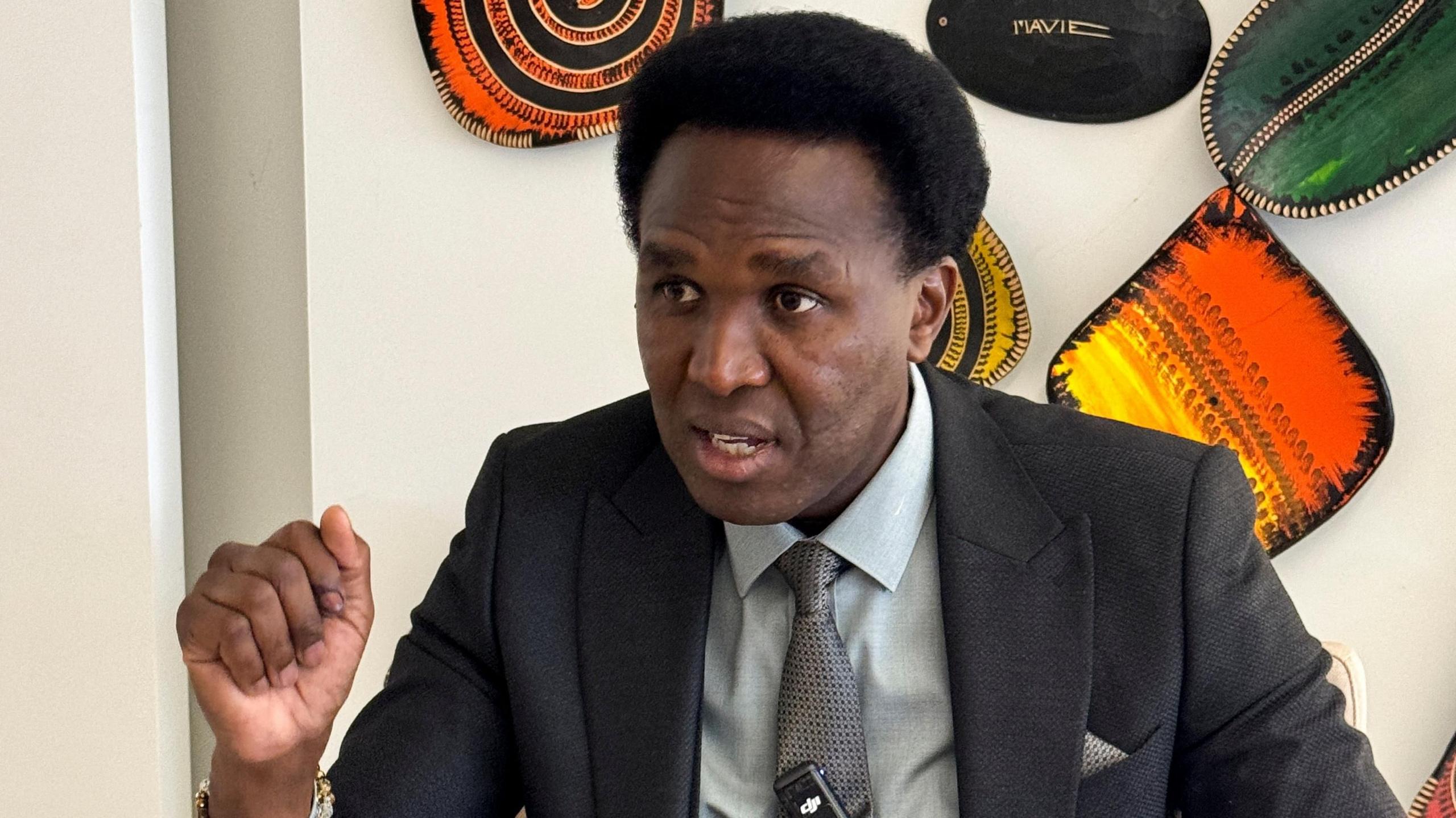Mozambique opposition leader says he will return home from exile

Mondlane has been in exile since October
- Published
Mozambique's opposition leader Venâncio Mondlane, who has been calling for protests for weeks from exile, has said he will return to the country on Thursday.
Mondlane said he would arrive ahead of the swearing-in of a new president next week.
Daniel Chapo of the ruling Frelimo party is due to be sworn next Wednesday after a court confirmed his election victory.
But Mondlane, the runner-up, rejected the outcome, sparking violent protests that have left dozens dead since October.
Mondlane left Mozambique the same month saying he feared for his life, after two of his aides were shot dead.
In a Facebook live address on Sunday, he sent out a defiant message to the authorities saying he "will be in Maputo. They don't need to chase me any more".
He said he would arrive at 08:05 local time (06:05 GMT) on Thursday at the international airport in Maputo, calling for people to welcome him there.
"If they are killing my brothers... then I will be there. You can do what you want. If you want to murder, murder. If you want to arrest, arrest too. I will be there," he said.
Mondlane maintains that he won the election and has called for more protests until there is "electoral truth".
His supporters have frequently staged violent protests across the country to demand an end to the 49-year-rule of the Frelimo party.
He has previously said he would install himself as president on 15 January - on the presidential inauguration day - despite the court upholding his rival's victory.
The electoral commission initially declared Chapo the winner of the election with 71% of the vote, compared to Mondlane's 20%.
The final official results from the constitutional court two weeks ago gave Chapo 65% and Mondlane 24%.
International election observers have previously said that the vote was flawed, pointing to doctored numbers and other irregularities during the counting process.
Security forces have sought to end the nationwide protests in a violent crackdown that has tested the country's stability.
More than 270 people have been killed, including protesters, children and members of the security forces, according to rights groups.
The unrest has also affected the economy, with more than 12,000 people losing their jobs and over 500 companies being vandalised.
Neighbouring countries have also been affected by the political unrest, with thousands of Mozambicans fleeing across the border.
Outgoing President Filipe Nyusi has in the past called for dialogue to resolve the dispute. On 27 December, Chapo called for "non-violence" and "unity".
You may also be interested in:

Go to BBCAfrica.com, external for more news from the African continent.
Follow us on Twitter @BBCAfrica, external, on Facebook at BBC Africa, external or on Instagram at bbcafrica, external